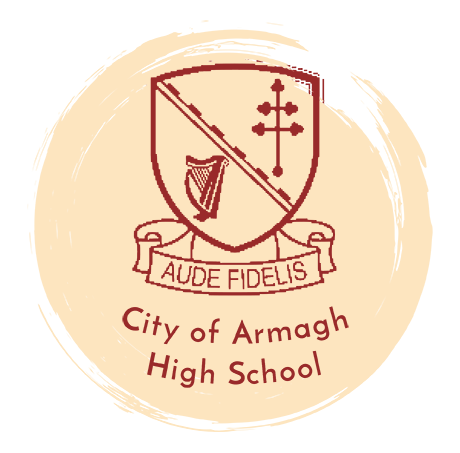Home Economics
Staff in the department:
Miss E. Girvan
What will you learn in Years 8-10?
Home Economics combines aspects of the science of food, nutrition, cooking, parenting skills
and finance. It delivers the vital skills that enable students to lead effective lives as
individuals and family members, as well as members of the wider community. The subject
will provide opportunities for students to explore real issues explicitly relevant to real-life
contexts.
Pupils will study the three Key Concepts for Home Economics:
1. Healthy Eating
Exploring Healthy Eating provides opportunities to develop the understanding required in the
choice, planning, storage, preparation, cooking and serving of food.
2. Home and Family Life
Exploring Home and Family Life provides opportunities to understand the importance of the
family as a caring unit.
3. Independent Living
Exploring Independent Living provides opportunities to understand the importance of
becoming discerning consumers and effective managers of resources.
Pupils have regular experience of practical activities in which they are encouraged to
develop a range of skills, including food preparation skills, organisational skills, problem
solving, working with others and time management.
What will you learn in Years 11 &12?
At GCSE the CCEA course is followed. The GCSE Food and Nutrition specification provide opportunities to develop students as a contributor to society, the economy and the environment. It prepares students for Life and Work by exploring current issues and situations explicitly relevant to real-life contexts. These experiences lead to the
development of a wide range of transferable skills.
The course comprises of two components.
Component 1: Food and Nutrition &
Component 2: Food and Nutrition Assessment Task
Topics studied include:
Food provenance
Food processing and production
Food and nutrition for good health
Energy and nutrients
Nutrition and dietary needs
Priority health issues
Consumer rights and responsibilities
Factors affecting food choice
Food safety
Food and money management
Food preparation and cooking
Developing recipes and meals creatively
GCSE Food & Nutrition Assessment
External Assessment (weighing 50%) 1 written exam paper of 2 hours duration, consisting of multiple choice, short, structured and extended questions
Internal Assessment (weighing 50%) 1 controlled assessment task to include:
- Task analysis
- Secondary research
- Justification of choice
- Planning
- Preparing and cooking of dishes
- Evaluation
What equipment will you need?
Practical lessons
Each student is expected to have a school apron, which can be purchased from Miss Girvan.
For practical lessons, students must bring their apron and a suitable container in order to
take home their cookery.
Theory lessons
Pens, pencils and a ruler are required for theory lessons, as well as your HE folder.
What do we expect from your homework?
Homework is given on a regular basis and is used to reinforce classwork or to revise
work. We expect every student to work to the best of their ability at any set homework
task.
At Key Stage 3, written homework is usually set every second week and should take
approximately 30 minutes to complete.
At Key Stage 4, homework should be completed weekly and the length of time required will
vary.
Any other information
Extra-Curricular
After School Cookery club is offered to KS3 students.


